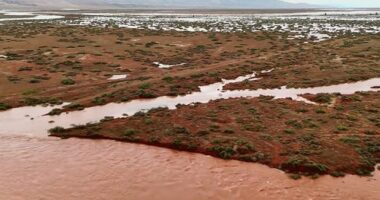Share this @internewscast.com
It also highlighted one of the few recognized methods to lower our PFAS levels.
What are PFAS, and how common are they?
“Unfortunately, everyone in Australia has PFAS in their system. The concern is about the levels present,” he stated during the PFAS committee hearing on Tuesday.

PFAS are a group of chemicals that can be added to household products to make them heat, stain, grease or water resistant. Source: SBS News
Last month, the Australian Bureau of Statistics (ABS) released data that tested for 11 different PFAS levels in the general population.
Research groups are currently testing for more than 40 different types of PFAS; however, the ABS suggests there are over 15,000 known compounds within the PFAS chemical class.
How to reduce your PFAS levels
Following 12 months of testing staff, the study found that those who donated blood every 12 weeks had a 10 per cent reduction in PFAS chemicals.
Other observational studies have found women have reduced levels. PFAS leave the body during menstruation and the replenished blood supply doesn’t have PFAS, lowering the overall levels.
What don’t we know about PFAS?
These blind spots include;
- The long-term health impacts of low exposure
- The health impacts on highly exposed individuals
- Where exposure comes from in the household environment
- Methods of reducing PFAS
“You’ve got a much greater chance of being able to identify the potential relationship between exposure and disease, whereas in the community, the levels are often very low,” he said.
“And you can get levels across the population,” he said, adding that a similar method was currently used to test wastewater for drugs.
Should we be concerned?
“So we’ve had nearly a 10-fold decrease in the levels of PFAS in the blood of Australians, and that continues to decrease.”













